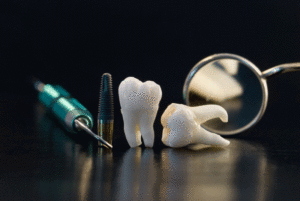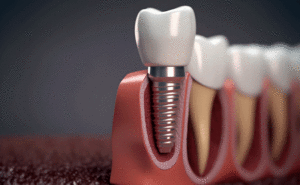Everyone knows that pregnant women shouldn’t drink, smoke or engage in any strenuous activity. However, something as seemingly routine as just going to the dentist also has the potential to be more complicated. First of all, let us just say that visiting the dentist for a teeth cleaning or other dental work is, for the most part, perfectly safe for pregnant women. At the same time, it is also important to inform your dentist of your pregnancy and how far along you are before your appointment, as this will help them better prepare for your visit and what treatments to administer.
How Pregnancy Impacts Your Mouth
During pregnancy, women may notice that their gums are bleeding during brushing and flossing. This is due to the hormonal changes that occur with pregnancy, resulting in a condition known as “pregnancy gingivitis.” The good news is that for many women, this is just temporary. However, your dentist may recommend more frequent brushing and flossing, and more frequent cleanings to help reverse it.
Aside from pregnancy gingivitis, pregnant women are often more at risk for tooth decay. This may be the result of morning sickness and/or diet. The best way to fend off tooth decay during pregnancy is simply to brush your teeth more often.
Dental Procedures During Pregnancy
Most dental procedures are perfectly safe to have performed while you’re pregnant. There are a couple of exceptions, however, notably:
- X-rays: Dental X-rays are considered safe so long as the expectant mother is properly shielded, but many dentists will just wait until the next appointment to perform this.
- Teeth whitening: This poses minimal risk to the developing child, but usually isn’t advised by dentists.
- Cosmetic procedures: Any elective procedure is ideally best left to be done following the birth of the child.
While the aforementioned are associated with minimal risk to the developing child, most dentists postpone such treatments just in case.
Additionally, if you’re planning to visit the dentist or have certain treatments performed during pregnancy, the best time to do it is usually during the second trimester. That’s because the first trimester is often associated with morning sickness and other symptoms which may make receiving dental work unappealing. During the third trimester, it may be uncomfortable to lie in the dental chair for an extended period of time. The second trimester is usually ideal.
Lastly, expectant mothers can make dental work more comfortable by bringing a pillow with them for while they are in the dental chair. They should also uncross their legs while receiving treatment to keep blood circulation at ideal levels.
For more information on dental care and pregnancy, contact Caven Dental today.



